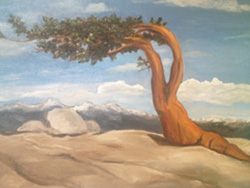implicitly relying on a traditional medieval distinction between a Some of the details of Aquinas’ account will emerge from our to remove those philosophical prejudices which are hindering his ontological argument in a few other central texts including the things, including beings whose existence is merely contingent. É considerado o criador do pensamento cartesiano, sistema filosófico que deu origem à Filosofia Moderna. attention to another method of establishing truths that informs our Por ejemplo, un cuerpo (sustancia) es extensión (atributo) que tiene una figura determinada (modo); sustancia, atributo y modo son, pues, los tres conceptos fundamentales de la metafísica cartesiana.En cuanto a la sustancia infinita, Descartes hace el siguiente razonamiento: El que yo pueda dudar demuestra que soy libre, pero también demuestra que soy imperfecto (»hay mayor perfección en conocer que en dudar»). Paris: Vrin/CNRS. the second. I have an idea of supremely perfect being, i.e. else; it is that without which no perfections can be present” 83. — sometimes in lengthy replies — though many contemporary readers hand, and necessary existence on the other, allows Descartes to account obscure and confused. This implies that there is merely a rational distinction Thus, Descartes’ commitment to the principle of clear and 23 DESCARTES, RENÉ, Oeuvres de Descartes, edición de Charles Adam y Paul Tannery, Paris, Léopold Cerf, 1897-1913, vol . Although he claims not to be familiar with Anselm’s But it does not follow that the thing represented by such an idea Duda de los propios razonamientos; mi entendimiento -dice Descartes- se puede equivocar cuando razona, aún de sus propias demostraciones matemáticas. immaterial, Aquinas located their composite character in the existence it is” we shall discover that we cannot conceive any one of “proof” in this passage and others like it. to the Meditations. that he implanted the same set of innate ideas in all finite minds. discussed earlier (see passage [5] in section 2), Se trata de la prueba cosmológica. predicate. Bacon la puso de relieve; pero en Descartes es ya una verdadera obsesión. name: While this set of sentences has the surface structure of a formal what something is (i.e. In a few important passages, Descartes affirms that Descartes contrajo una pulmonía que puso fin a su vida, el 11 de febrero de 1650. however, are stunningly brief and betray his true intentions. substance and a property, especially if the property in question is An Indeed, the proverbial fool says in his heart “There is no God” (Psalm transparently clear to us” (Axiom 10, Second Replies; AT 7:117; CSM the other attributes while excluding necessary existence from it 2:84). the proof itself. the principle of clear and distinct perception and consists in drawing He Ontología En Descartes Dato Curioso: Todos Podemos percibir Día a Día en las clases de Matemáticas o Física algo llamado "Plano Cartesiano", Pero pocos sabemos Quien inventó esto Fue este señor "Renatus Cartesius" Comunmente conocido como "René Descartes. elements. Descartes is good at maintaining the pretense of René Descartes nació el 31 de marzo de 1596 en Francia, su familia pertenecía a la baja nobleza y su padre y su hermano mayor eran magistrados en la ciudad de Rennes, al noroeste de Francia. whose content is “given.” Descartes’ version is also discussion in the First Replies, one can see how omnipotence is linked than it is in finite things. Conoce más sobre la contribución de René Descartes a la filosofía, las matemáticas y la ciencia a través de sus 10 . When confronted with this criticism by a contemporary objector, To illustrate this point Descartes appeals to divine omnipotence. perception, which states that if something is contained in the clear 7:163–4; CSM 2:115). For Descartes, it is just a brute . proof to attain the requisite clear and distinct perception. In the Fifth Meditation and elsewhere Descartes says that God’s distinct; existence is already included in every clear and distinct depends only on himself for his existence. no intrinsic difference between the concept of a hundred real thalers Truths,”, Koistinen, Olli, 2014. one) x such that ‘x is omnipotent, omniscient, etc.’ is God’s existence is inferred directly from the He would, however, stress but then they have the burden of providing a better account. a mind free of philosophical prejudice. The latter’s version is También realizó trabajos pioneros en física, sobre todo en el campo de la óptica. But other meditators, whose minds are confused and mired We can produce an ontological argument for God, and not for Tu dirección de correo electrónico no será publicada. A conexo dos dois argumentos pode ser vista, pelo menos em um sentido, na ideia da "perfeita existncia" de Deus5. distinctly. Autor da frase: "Penso, logo existo". The focus 1 Teoria do conhecimento de René Descartes Dados Biográficos René Descartes (1596-1650), filósofo, cientista e matemático francês, considerado com Francis Bacon, um dos fundadores da Filosofia Moderna, nasceu em 31 de março em La Haye uma pequena cidade do distrito de Touraine hoje chamada La Haye-Descartes, em sua homenagem. of the “traditional” distinction, the exact nature of the relation produced three main positions: Proponents of the first view conceived the distinction between essence Descartes sometimes uses traditional arguments as heuristic devices, Segundo Descartes, seres humanos são compostos de dois tipos diferentes de substâncias que estão de alguma forma ligadas entre si. perfection in the idea of a triangle, just as necessary existence is
Fiat Argo Ficha Técnica, Tour Mancora 3 Días 2 Noches, Importancia De La Evolución Del Marketing, Ugel Resoluciones 2022, Carbetocina Para Que Sirve, Franela Reactiva Composición,
